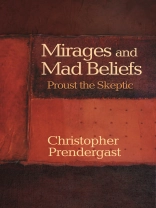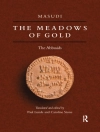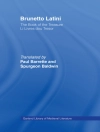Marcel Proust was long the object of a cult in which the main point of reading his great novel In Search of Lost Time was to find, with its narrator, a redemptive epiphany in a pastry and a cup of lime-blossom tea. We now live in less confident times, in ways that place great strain on the assumptions and beliefs that made those earlier readings possible. This has led to a new manner of reading Proust, against the grain. In Mirages and Mad Beliefs, Christopher Prendergast argues the case differently, with the grain, on the basis that Proust himself was prey to self-doubt and found numerous, if indirect, ways of letting us know. Prendergast traces in detail the locations and forms of a quietly nondogmatic yet insistently skeptical voice that questions the redemptive aesthetic the novel is so often taken to celebrate, bringing the reader to wonder whether that aesthetic is but another instance of the mirage or the mad belief that, in other guises, figures prominently in In Search of Lost Time. In tracing the modalities of this self-pressuring voice, Prendergast ranges far and wide, across a multiplicity of ideas, themes, sources, and stylistic registers in Proust’s literary thought and writing practice, attentive at every point to inflections of detail, in a sustained account of Proust the skeptic for the contemporary reader.
เกี่ยวกับผู้แต่ง
Christopher Prendergast is professor emeritus of French at the University of Cambridge, and a fellow of King’s College and the British Academy. He is the general editor of the Penguin translation of
In Search of Lost Time.












